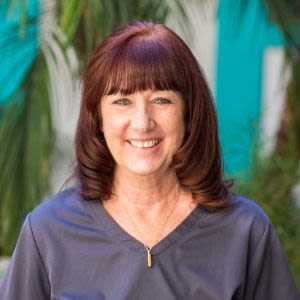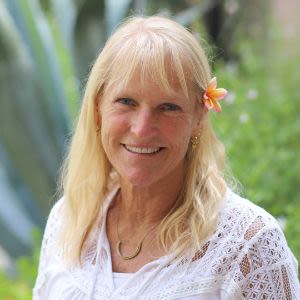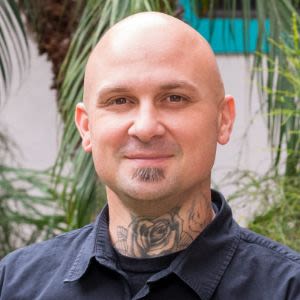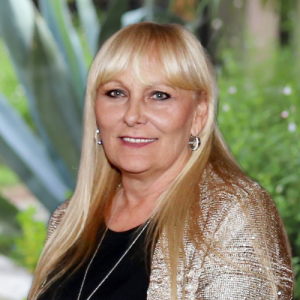






Casa Recovery
Verified Center
This provider's information has been quality-checked by Recovery.com's Research Team for accuracy and completeness, including center verification through appropriate third-party organizations.
Treatment Focus
This center treats substance use disorders and mental health conditions. You'll receive individualized care catered to your unique situation and diagnosis, learn practical skills for recovery, and make new connections in a restorative environment.
Primary Level of Care
Treatment Focus
This center treats substance use disorders and mental health conditions. You'll receive individualized care catered to your unique situation and diagnosis, learn practical skills for recovery, and make new connections in a restorative environment.
Primary Level of Care
Provider's Policy
This center does not accept Medicaid and Medicare. Depending on your coverage, your insurance may cover all or most of your program at Casa Recovery. Insurance companies also cover outpatient services to clients who live nearby and need a more flexible option (day and evening outpatient programs now available). We verify your benefits with your insurance company at no charge with no obligation to enter our program. Your coverage may include a copay, which we will explain after verifying. Once verified, we make plans for you to come into our program. It is usually a 1-2 day process depending on where you are located. Unlike other programs, ours is all-inclusive. There are no hidden fees. We are in-network with Blue Shield of California.
Casa Recovery
Casa Recovery
About Casa Recovery
Casa Recovery specializes in treating mental health challenges including depression, anxiety, trauma and PTSD, grief, suicidal ideation, bipolar, borderline and personality disorders, ADHD as well as co-occurring behaviors like addiction, self-harm or disorder eating. Casa Recovery’s team of experienced medical and clinical professionals, along with its private, safe, and boutique setting, is a perfect environment for true healing.
Casa Recovery’s integrative approach to treatment includes holistic therapies like nutrition, art therapy, yoga, meditation and reiki as well as onsite medical care to ensure personalized attention and support for each client’s unique needs.
Casa Recovery offers an inclusive and affirmative environment for clients identifying as part of the LGBTQ+ community, as well as gender-specific or nonbinary living residences. All clients have the option to request single or shared room preferences in cozy, upscale homes.
Casa Recovery’s comprehensive treatment options include either full day or half day intensive therapeutic programs integrating evidence-based practices, trauma interventions and experiential therapies. Their professional team of psychologists, psychiatrists, medical physicians, nurses, marriage and family therapists, clinical social workers, case managers, drug and alcohol counselors, art therapist and dietitian, as well as holistic practitioners, are committed to helping clients find true healing and long-term success.
Find True Healing in Sunny California
Casa Recovery’s location in downtown San Juan Capistrano provides calming beach amenities and an atmosphere of privacy and healing. Southern California has sun and warmth year-round, which is extremely helpful in providing a therapeutic resource. Beach access and hikes with sea views allow clients to take full advantage of the inviting weather of Southern California. While in the program, clients can enjoy not only a sophisticated clinical team but also comfortable and safe accommodations with private or semi-private room options.
Focus on One-On-One Attention
The experience, expertise, and qualifications of each team member, as well as the limited number of clients accepted, helps ensure each individual receives a custom treatment plan focused on the client’s goals. Clients have opportunities for more one-on-one sessions for Individual Therapy, EMDR, Brainspotting, and Somatic Experiencing, as well as Nutrition, Art Therapy and Massage.
Collaborative Approach to Treatment
Casa Recovery provides varying levels of care to encourage independence and self-sufficiency. Development and practice of healthy coping skills are an integral part of the program. Beyond intensive individual and small group sessions, psychiatry and case management, clients can enjoy recreational groups and activities, including art therapy, expressive modalities, cooking and eating meals together, plus adventure outings.

Highlights from the Center
Highlights
These highlights are provided by and paid for by the center.
Co-Occurring Disorders Treatment
Private Rooms Available
Mental Health Disorder Treatment
Trauma Treatment
Center Overview
Treatment Focus
This center treats substance use disorders and mental health conditions. You'll receive individualized care catered to your unique situation and diagnosis, learn practical skills for recovery, and make new connections in a restorative environment.
Joint Commission Accredited
The Joint Commission accreditation is a voluntary, objective process that evaluates and accredits healthcare organizations (like treatment centers) based on performance standards designed to improve quality and safety for patients. To be accredited means the treatment center has been found to meet the Commission's standards for quality and safety in patient care.
Insurance Accepted
Cash Pay Rates
Estimated Cash Pay Rate
Center pricing can vary based on program and length of stay. Contact the center for more information. Recovery.com strives for price transparency so you can make an informed decision.
Luxury rehab centers offer a unique blend of luxurious amenities and high-quality treatment. From private suites to gourmet dining, personal trainers to spa treatments, these facilities provide a high level of comfort and discretion.

Meet Your Care Team

Maryam Aziz
Executive Clinical Director
LCSW

Sean Treacy
Chief Executive Officer/Director of Admissions
Bachelor's Degree in Business Administration

Shonte Perluss
Chief Administrative Officer
Bachelor's Degree in Psychology

Dr. Randall Turner
Medical Director
D.O.

Lynda Totah
Mental Health Nurse Practitioner
FNP-C, PMHNP-BC

Jeanne Gettys
Medical Concierge
SUDRC

Daniel Jimmerson
Therapist
LPCC, CADC

Aster Robarge
Case Manager
SUDRC

Cristy Fisher-Lynde
Case Manager
CATC III

Alea Southard
Group Facilitator
RADT

Alexandra Durham
Sound Therapy & Reiki Facilitator
RADT

Sandy Szemenyei
Breathworks Group Facilitator
CADC-II

Courtney Parkyn
Yoga & Meditation Instructor
E-RYT 500, SUDRC

Tiffany Congelliere
Director of Marketing & Strategic Partnerships
MBA

Celeste Seiler
Director of Human Resources/Officer Manager

Alysha Orecchia
Recreational Therapist
MA, ATR-BC

Jeremy Rintalan
Therapist
ACSW

Eva Norton
Therapist
ACSW

Amanda Irrgang
DIETICIAN
RD

Collette Fairchild
MFT PRACTICUM TRAINEE
BS

Karin Draper
THERAPIST
LMFT

Lauran Brown
ADMISSIONS COORDINATOR
SUDRC

Marsalee Malatesta
CLINICAL SUPERVISOR
LCSW

Saraah Rodda
CASE MANAGER
SUDCC-II CS

Max
DIRECTOR OF EMOTIONAL SUPPORT AND CUDDLES

Krishna Jessick
FOUNDER & OWNER

John Kolosta
OPERATIONS MANAGER




Levels of Care








Your Care Options
Specializations
Personality Disorders
Personality disorders destabilize the way a person thinks, feels, and behaves. If untreated, they can undermine relationships and lead to severe distress.
Anxiety
Anxiety is a common mental health condition that can include excessive worry, panic attacks, physical tension, and increased blood pressure.
Bipolar
This mental health condition is characterized by extreme mood swings between depression, mania, and remission.
Depression
Symptoms of depression may include fatigue, a sense of numbness, and loss of interest in activities. This condition can range from mild to severe.
LGBTQ+
Addiction and mental illnesses in the LGBTQ+ community must be treated with an affirming, safe, and relevant approach, which many centers provide.
Licensed Primary Mental Health
Some primary care providers offer mental health diagnosis and treatment. This can prevent patients from developing more serious conditions.
Post Traumatic Stress Disorder
PTSD is a long-term mental health issue caused by a disturbing event or events. Symptoms include anxiety, dissociation, flashbacks, and intrusive thoughts.
Trauma
Some traumatic events are so disturbing that they cause long-term mental health problems. Those ongoing issues can also be referred to as "trauma."
Who We Treat
Older Adults
Addiction and mental health treatment caters to adults 55+ and the age-specific challenges that can come with recovery, wellness, and overall happiness.
Co-Occurring Disorders
A person with multiple mental health diagnoses, such as addiction and depression, has co-occurring disorders also called dual diagnosis.
Executives
Executive treatment programs typically directly support the needs of people who manage businesses and may provide flexible schedules and office space to allow work during treatment.
Young Adults
Emerging adults ages 18-25 receive treatment catered to the unique challenges of early adulthood, like college, risky behaviors, and vocational struggles.
LGBTQ+
Addiction and mental illnesses in the LGBTQ+ community must be treated with an affirming, safe, and relevant approach, which many centers provide.
Men and Women
Men and women attend treatment for addiction in a co-ed setting, going to therapy groups together to share experiences, struggles, and successes.
Midlife Adults
For adults ages 40+, treatment shifts to focus on the unique challenges, blocks, and risk factors of their age group, and unites peers in a similar community.
Approaches
Evidence-Based
A combination of scientifically rooted therapies and treatments make up evidence-based care, defined by their measured and proven results.
Experiential
Expressive tools and therapies help patients process past situations, learn more about themselves, and find healing through action.
Family Involvement
Providers involve family in the treatment of their loved one through family therapy, visits, or both–because addiction is a family disease.
Holistic
A non-medicinal, wellness-focused approach that aims to align the mind, body, and spirit for deep and lasting healing.
Individual Treatment
Individual care meets the needs of each patient, using personalized treatment to provide them the most relevant care and greatest chance of success.
Therapies
1-on-1 Counseling
Patient and therapist meet 1-on-1 to work through difficult emotions and behavioral challenges in a personal, private setting.
Trauma-Specific Therapy
This form of talk therapy addresses any childhood trauma at the root of a patient's current diagnosis.
Mindfulness Therapy
This ancient practice can be mental, emotional, and even spiritual. In meditation, you focus your attention on the present moment without judgement.
Adventure Therapy
This experiential approach uses the physical and emotional challenges of outdoor activities as tools for personal growth.
Attachment-Based Family Therapy
ABFT is a trauma-focused therapy that teaches you to form healthy relationships by rebuilding trust and healing attachment issues formed in childhood.
Animal Therapy
Animals can inspire trust and self-worth. In this experiential therapy, guided interactions are used to improve social skills and emotion regulation.
Art Therapy
Visual art invites patients to examine the emotions within their work, focusing on the process of creativity and its gentle therapeutic power.
Couples Counseling
Partners work to improve their communication patterns, using advice from their therapist to better their relationship and make healthy changes.
Conditions We Treat
Grief and Loss
Grief is a natural reaction to loss, but severe grief can interfere with your ability to function. You can get treatment for this condition.
Personality Disorders
Personality disorders destabilize the way a person thinks, feels, and behaves. If untreated, they can undermine relationships and lead to severe distress.
ADHD, ADD
ADHD is a common mental health condition caused by dopamine imbalance. Common symptoms include inattention, hyperactivitiy, and impulsivity.
Anger
Although anger itself isn't a disorder, it can get out of hand. If this feeling interferes with your relationships and daily functioning, treatment can help.
Anxiety
Anxiety is a common mental health condition that can include excessive worry, panic attacks, physical tension, and increased blood pressure.
Bipolar
This mental health condition is characterized by extreme mood swings between depression, mania, and remission.
Burnout
Burnout entails mental and physical exhaustion, and leads to a severe lack of fulfillment. This condition is often caused by overwork.
Codependency
Codependency is a pattern of emotional dependence and controlling behavior. It's most common among people with addicted loved ones.
Substances We Treat
Alcohol
Using alcohol as a coping mechanism, or drinking excessively throughout the week, signals an alcohol use disorder.
Benzodiazepines
Benzodiazepines are prescribed to treat anxiety and sleep issues. They are highly habit forming, and their abuse can cause mood changes and poor judgement.
Chronic Relapse
Consistent relapse occurs repeatedly, after partial recovery from addiction. This condition requires long-term treatment.
Co-Occurring Disorders
A person with multiple mental health diagnoses, such as addiction and depression, has co-occurring disorders also called dual diagnosis.
Cocaine
Cocaine is a stimulant with euphoric effects. Agitation, muscle ticks, psychosis, and heart issues are common symptoms of cocaine abuse.
Drug Addiction
Drug addiction is the excessive and repetitive use of substances, despite harmful consequences to a person's life, health, and relationships.
Ecstasy
Ecstasy is a stimulant that causes intense euphoria and heightened awareness. Abuse of this drug can trigger depression, insomnia, and memory problems.
Heroin
Heroin is a highly addictive and illegal opioid. It can cause insomnia, collapsed veins, heart issues, and additional mental health issues.
Languages
Aftercare
Care Designed for Your Needs
Personal Amenities
Amenities
Special Considerations
Executive Program
Addiction and mental health treatment for executives typically involves high discretion, greater technology access, and more private, 1-on-1 care.
Flexible technology policies
Centers with flexible technology policies allow professionals to stay in touch with work and give patients a greater sense of connection and normalcy.
Gender-specific groups
Patients in gender-specific groups gain the opportunity to discuss challenges unique to their gender in a comfortable, safe setting conducive to healing.
Activities
Yoga
Yoga is both a physical and spiritual practice. It includes a flow of movement, breathing techniques, and meditation.
Off-Site Activities
Yoga
Yoga is both a physical and spiritual practice. It includes a flow of movement, breathing techniques, and meditation.
Off-Site Amenities
What people are saying
Treatment
5.0
Accommodations
4.9
Food & Nutrition
4.6
Value
4.8
Pros
- Supportive Aftercare (3)
- Beautiful Location (3)
- Excellent & Effective Treatment Programming (2)
- Personalized (2)
Julia
Treatment in 2019 • (180+ days) • Reviewed 05/22/22
Former Client
•Behavioral Health Technician
Jordan D.
Treatment in 2021 • (90 days) • Reviewed 03/30/22
Former Client
•Attorney
AM
Treatment in 2023 • (45 days ) • Reviewed 09/08/23
Former Client
•Director level position
M.A.
Treatment in 2019 • (180+ days) • Reviewed 05/22/22
Former Client
Erin
Treatment in 2022 • (45 days) • Reviewed 06/15/22
Loved One of a Former Client






